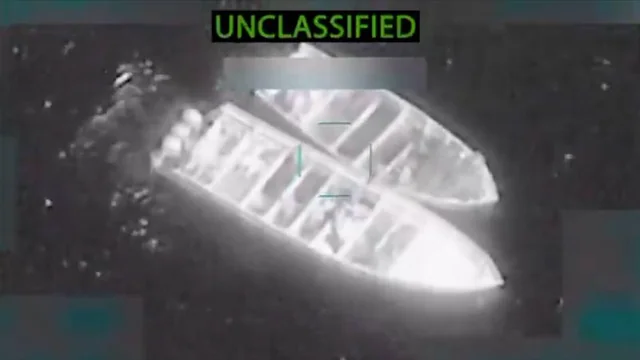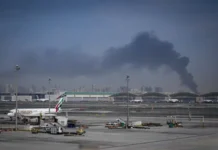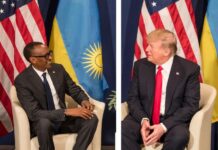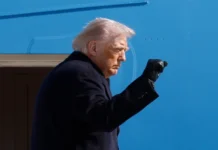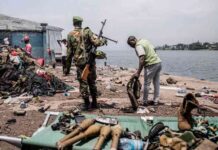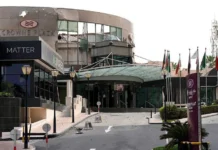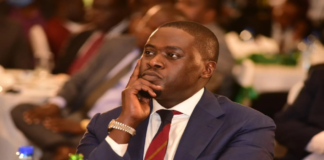CNN – The United Kingdom is no longer sharing intelligence with the US about suspected drug trafficking vessels in the Caribbean because it does not want to be complicit in US military strikes and believes the attacks are illegal, sources familiar with the matter told CNN.
The UK’s decision marks a significant break from its closest ally and intelligence sharing partner and underscores the growing skepticism over the legality of the US military’s campaign around Latin America.
For years, the UK, which controls a number of territories in the Caribbean where it bases intelligence assets, has helped the US locate vessels suspected of carrying drugs so that the US Coast Guard could interdict them, the sources said. That meant the ships would be stopped, boarded, its crew detained, and drugs seized.
The intelligence was typically sent to Joint Interagency Task Force South, a task force stationed in Florida that includes representatives from a number of partner nations and works to reduce the illicit drug trade.
But shortly after the US began launching lethal strikes against the boats in September, however, the UK grew concerned that the US might use intelligence provided by the British to select targets. British officials believe the US military strikes, which have killed 76 people, violate international law, the sources said. The intelligence pause began over a month ago, they said.
The UN’s human rights chief, Volker Türk, said last month that the strikes violate international law and amount to “extrajudicial killing.” The UK agrees with that assessment, the sources told CNN.
The British embassy in Washington, the Pentagon and the White House did not respond to requests for comment.
Before the US military began blowing up boats in September, countering illicit drug trafficking was handled by law enforcement and the US Coast Guard, Cartel members and drug smugglers were treated as criminals with due process rights — something the UK was happy to help with, the sources said.
But the Trump administration has argued that the US military can legally kill suspected traffickers because they pose an imminent threat to Americans and are “enemy combatants” who are in an “armed conflict” with the US, according to a memo sent by the administration to Congress. The Justice Department’s Office of Legal Counsel issued an opinion, which is still classified, reinforcing that argument, CNN has reported, and Trump has designated a number of drug cartels as “foreign terrorist groups.” The White House has said repeatedly that the administration’s actions “comply fully with the Law of Armed Conflict,” the area of international law that is designed to prevent attacks on civilians.
But legal experts say the Law of Armed Conflict would still apply to civilian drug traffickers, and the designation of a group as a foreign terrorist organization does not automatically authorize the use of lethal force. Several boats hit by the US have either been stationary or were turning around when they were attacked, CNN has reported, undermining the administration’s claim that they posed an imminent threat that could not be dealt with through interdiction and arrest.
Senior US defense officials have also expressed skepticism of the military campaign. The commander of US Southern Command, Adm. Alvin Holsey, offered to resign during a tense meeting last month with Secretary of Defense Pete Hegseth and Chairman of the Joint Chiefs of Staff after he raised questions about the legality of the strikes, CNN has reported. Holsey will leave his post in December, just one year into his tenure as the SOUTHCOM chief.
Lawyers specializing in international law within DoD’s Office of General Counsel have also raised concerns about the legality of the strikes, CNN has reported. Multiple current and former uniformed lawyers told CNN that the strikes do not appear lawful. Hegseth’s spokesperson has previously denied that any lawyers involved in the operations have dissented.
Canada, another key US ally which has helped the US Coast Guard interdict suspected drug traffickers in the Caribbean for nearly two decades, has also distanced itself from the US military strikes. The sources told CNN that Canada intends to continue its partnership with the Coast Guard, called Operation Caribbean. But the country has made clear to the US that it does not want its intelligence being used to help target boats for deadly strikes, the sources told CNN.
A spokesperson for Canada’s defense told Canadian press last month that “it is important to note that Canadian Armed Forces activities under Operation Caribbean, conducted in co-ordination with the United States Coast Guard, are separate and distinct” from the US military strikes on suspected drug vessels.









